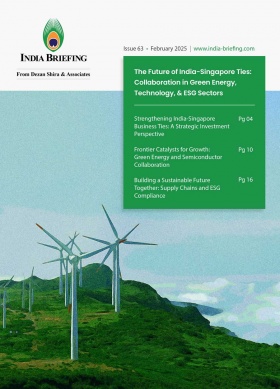India’s Employment Linked Incentive Scheme Targets 35 Million Jobs Over Two Years
India’s recently approved Employment Linked Incentive (ELI) Scheme seeks to accelerate job creation, enhance skill development, and expand social security, with a strong emphasis on the country’s manufacturing sector.
The scheme provides incentives to first-time employees and to employers who generate new employment opportunities in India.
India’s central government has approved the Employment Linked Incentive (ELI) Scheme on July 1, 2025, aimed at generating employment opportunities, enhancing workforce skills, and expanding social security coverage. While the initiative spans across all sectors, it places particular emphasis on strengthening India’s manufacturing industry.
As part of the ELI scheme, newly employed individuals as well as employers creating new jobs will benefit from the central government incentives. The central government will extend these incentives for an additional two years to employers in the manufacturing sector. The scheme was introduced in the Union Budget 2024–25, which includes five targeted schemes to support 41 million youth through employment, skill development, and entrepreneurship, with an outlay of INR 2 trillion (US$23.33 billion).
CLICK HERE: India’s Union Budget 2024-25: Key Announcements
ELI scheme targets and timeline
With an allocated budget of INR 994.46 billion (US$11.6 billion), the ELI scheme aims to facilitate the creation of over 35 million jobs in India within a two-year implementation window. The benefits will apply to eligible employment generated between August 1, 2025, and July 31, 2027.
Dual-component scheme structure for employment creation
The employment scheme is divided into two main components—Part A focusing on first-time employees and Part B targeting employers.
Part A: Benefits for first-time workers
This component is designed for individuals entering the workforce for the first time and registered with the Employees’ Provident Fund Organisation (EPFO). Eligible employees—those earning up to INR 100,000 (US$1,166.99) per month—will receive an EPF-based wage incentive of up to INR 15,000 (US$175.04), disbursed in two stages. The first half will be paid after six months of continuous service, while the second half will be released upon completing one year of service and a financial literacy program.
A portion of this incentive will be mandatorily deposited into a savings instrument to foster long-term saving habits, accessible to the employee at a later date. An estimated 19.2 million individuals are expected to benefit from this initiative.
Part B: Incentives for employers generating jobs
This segment aims to encourage employers to create sustained new employment, particularly in the manufacturing sector. Companies registered with EPFO that hire additional staff earning up to INR 100,000 (US$1,166.99) per month will receive a monthly incentive of up to INR 3,000 (US$35) per employee for a period of two years. For manufacturing units, this support will continue through the third and fourth years as well.
Eligibility criteria include the hiring of at least two new employees by establishments with fewer than 50 employees and a minimum of five new hires for those with 50 or more employees. All new hires must remain continuously employed for at least six months to qualify.
Broader impact and objectives
The ELI scheme is intended not only to stimulate employment growth across industries but also to accelerate formalization of India’s workforce. It aims to integrate millions of young people into the formal economy while expanding their access to social security mechanisms. India expects this initiative to particularly strengthen employment in manufacturing while enhancing employability and financial inclusion among first-time workers.
(US$1 = INR 85.69)
About Us
India Briefing is one of five regional publications under the Asia Briefing brand. It is supported by Dezan Shira & Associates, a pan-Asia, multi-disciplinary professional services firm that assists foreign investors throughout Asia, including through offices in Delhi, Mumbai, and Bengaluru in India. Dezan Shira & Associates also maintains offices or has alliance partners assisting foreign investors in China, Hong Kong SAR, Vietnam, Indonesia, Singapore, Malaysia, Mongolia, Dubai (UAE), Japan, South Korea, Nepal, The Philippines, Sri Lanka, Thailand, Italy, Germany, Bangladesh, Australia, United States, and United Kingdom and Ireland.
For a complimentary subscription to India Briefing’s content products, please click here. For support with establishing a business in India or for assistance in analyzing and entering markets, please contact the firm at india@dezshira.com or visit our website at www.dezshira.com.
- Previous Article Understanding India’s DPDP Consent Management Rules for Businesses
- Next Article 印度新财务规则将于 2025 年 7 月 1 日生效:企业需知事项












